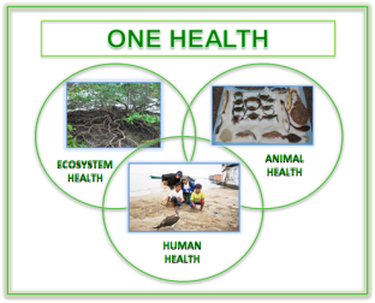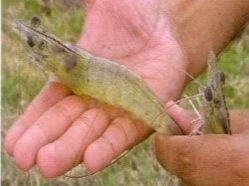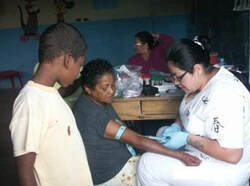- HOME
- SERVICES
-
ONE HEALTH Epigenomics and Microbiomes, From Soil to People
-
ONE HEALTH PROJECTS
>
- THE MANGROVE EPIGENOME (MangroveENCODE) PROJECT >
-
THE SHRIMP EPIGENOME (ShrimpENCODE) PROJECT
>
- penaeid shrimp genomes
- pilot genome sequence of first SPF Penaeus vannamei
- epigenetic genes of shrimp
- transposable elements of Penaeus vannamei
- contaminants of wild and farmed shrimp (metals, glyphosate, Bt, EDCs)
- glyphosate-free shrimp feeds
- transgenerational toxicological effects of glyphosate on shrimp
- THE COASTAL PEOPLE EPIGENOME (ChildrenENCODE) PROJECT >
-
ONE HEALTH PROJECTS
>
- ONE HEALTH NEWS!
- PUBLICATIONS
- MEETINGS - ADWARDS
- CONTACT US
|
In 2017, after the ONE HEALTH Epigenomics and Microbiomes: From Soil to People Symposium held at the Sheraton Framingham Hotel & Conference Center, MA, USA, March 16-18, 2017, EGI decided to continue support of the ONE HEALTH program of the FUCOBI Foundation of Ecuador (www.fucobi.org), and coordinate the research and educational activities of their program ‘UNA SALUD / ONE HEALTH Epigenomics and Microbiomes: Somos lo que comemos / We are what we eat”. The program includes the MangroveENCODE, ShrimpENCODE and ChildrenENCODE projects, with focus on application of the holistic concept of ONE HEALTH to conserve healthy ecosystems (agricultural soil, sediment of mangroves forests), to maintain healthy animals (shrimp/shellfish, fish), to protect human health long-term (antibiotic resistance, zoonoses, obesity, diabetes, microcephaly and other neural tube defects, among others).
Program results will be presented at the ‘ONE HEALTH Epigenomics & Microbiomes: From Soil to People’ workshop at the annual meetings of the National Shellfisheries Association (NSA). At the 2021 NSA meeting in Charlotte, NC, speakers for the ChildrenENCODE will address the following topics:Shrimp Scampi: a Citizen Science project to examine glyphosate and other EDCs in shrimp sold at US supermarkets; Seafood safety and food security – who is in charge?; ChildrenENCODE: epigenetic mechanisms associated with EDCs in shrimp and people from estuaries - a case study of metals associated with congenital malformations of children of the Santa Elena peninsula of Ecuador; and Basic research needed to produce healthy shrimp. A group discussion will follow. |
Program results will be presented at the 'ONE HEALTH
Epigenomics & Microbiomes: From Soil to People' workshop
at the annual meetings of the National Shellfisheries
Association (NSA).
At the 2021 NSA meeting in Charlotte, NC.
ONE HEALTH PROJECTS
|
The program includes:
The MangroveENCODE, ShrimpENCODE and ChildrenENCODE projects, with focus on application of the holistic concept of ONE HEALTH to conserve healthy ecosystems (agricultural soil, sediment of mangroves forests), to maintain healthy animals (shrimp/shellfish, fish), to protect human health long-term (antibiotic resistance, zoonoses, obesity, diabetes, microcephaly and other neural tube defects, among others). |
- HOME
- SERVICES
-
ONE HEALTH Epigenomics and Microbiomes, From Soil to People
-
ONE HEALTH PROJECTS
>
- THE MANGROVE EPIGENOME (MangroveENCODE) PROJECT >
-
THE SHRIMP EPIGENOME (ShrimpENCODE) PROJECT
>
- penaeid shrimp genomes
- pilot genome sequence of first SPF Penaeus vannamei
- epigenetic genes of shrimp
- transposable elements of Penaeus vannamei
- contaminants of wild and farmed shrimp (metals, glyphosate, Bt, EDCs)
- glyphosate-free shrimp feeds
- transgenerational toxicological effects of glyphosate on shrimp
- THE COASTAL PEOPLE EPIGENOME (ChildrenENCODE) PROJECT >
-
ONE HEALTH PROJECTS
>
- ONE HEALTH NEWS!
- PUBLICATIONS
- MEETINGS - ADWARDS
- CONTACT US








